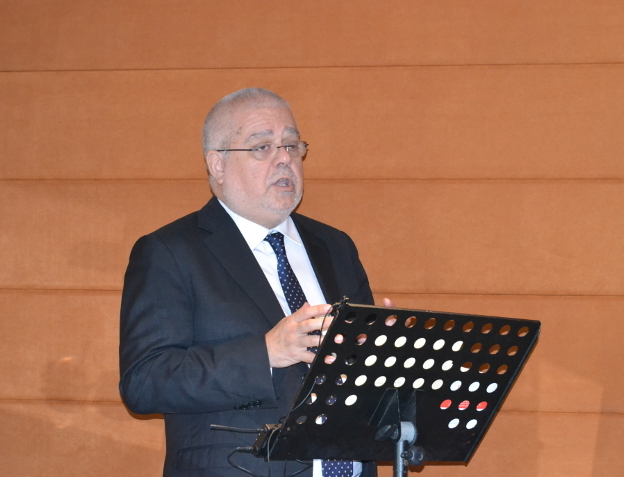
Dr. Joan Francesc Pont
Joan Francesc Pont, full academician and member of the Governing Board of the Royal European Academy of Doctors-Barcelona 1914 (RAED), reflected on the figure of the renowned humanist Erasmus of Rotterdam and his contribution to Europe today during the 4th International Act-European Congress of Interdisciplinary Research of the RAED, celebrated the past month of July in diverse capitals of the Mediterranean. Pont presented the paper “Erasmo de Rotterdam: el helenismo constructor de una Europa humanista” (Erasmus of Rotterdam: the Hellenic builder of a Humanist Europe), in which he outlined the figure of this Renaissance thinker and pointed out his main contributions and his important inheritance for current society and thought.
“Erasmus of Rotterdam (1466-1536) never ceased to base his wisdom on Hellenism, Greek having been the language through which he performed his exegesis of the Bible of the Seventy in preference to the Vulgate -the academician explained-. In his frenzied effort to recover an expressive and elegant Latin that exceeded the poor ecclesiastical language, Erasmus drinks from Greek sources and, although he picks up phrases from the Bible, he is guided to recognise that the true metaphor is found in Pagan literature. He dedicated 35 years of his life to writing the adages, which he defined as a commonly used phrase characterised by its subtle novelty, for him, knowing these adages led to philosophy, beauty and the grace of discourse, to the understanding of the best authors, research on Greek goes far beyond philology to constitute a service to the cause of the rediscovery of Hellenism”.

For Pont, the current Europe cannot be understood without that humanistic substratum that was born with Erasmus and other figures who knew how to combine Christianity and freedom. Now, however, that Europe is in danger because of the multiple splits that threaten it. “Humanism has always wanted the unity of Europe”, -Pont continued with his exposition-, “Erasmus tried to maintain his independence between Rome and Luther when the wars of religion replaced theological disputes. Dogmatists on either side accused Erasmus of to be no more than a man and not to speak the language of the spirit. Actually, he was the last man, if I may say so, and fled from theology, from state politics, from inter-church disputes. In his study room, he escaped the noise and took refuge in the silence of the books, where he still believed that he could be useful to humanity”.
In this incessant return to Hellenism, Erasmus also rescued the thoughts of philosophers such as Socrates. “And from Socrates, through Erasmus, we have learned the need to be critical -added Pont-. That requires talent and courage, adopting the critical attitude as a virtue and, in short, being able to obey or disobey, to consent or of dissent, according not to the claim of false gurus, but from the exercise of our moral autonomy, the heart of humanism”.


